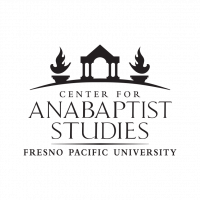The power of community building took on a whole new meaning for Global Anabaptist Peacebuilders (GAP) Institute participants.
West Coast Mennonite Central Committee (MCC) and the Fresno Pacific Biblical Seminary Center for Anabaptist Studies hosted 25 young adults—18 and older—at the GAP Institute, June 16-24, 2016, at Fresno Pacific University (FPU).
FPU student Juana Moreno was inspired to put restorative justice techniques she learned at GAP into practice at home, in school and in church. “Young people who are broken are open to hope. They are hungry for someone to come and say ‘I care about you,’” she said. “There are a lot of opportunities in environments like the Juvenile Detention Center to share the love of Christ that transforms lives in a radical way when all else fails.”
The institute was designed to teach about migration, restorative justice, care for creation and food security. Sessions combining classroom teaching and hands-on experience were led by professors and other experts. “Global issues can often seem daunting or disheartening. As Anabaptist Christians we have a strong sense of responsibility to care for the world, but it's not always easy to know how,” said Thomas Adlard, West Coast MCC administrative coordinator, who organized this year’s event.
“GAP brings together passionate young adults, challenges them to make a difference and then lays out practical ways for them to do so, and doesn't expect anyone to do it alone,” Adlard said. “Despite such challenging topics the event is always fun and inspiring.”
Participants kayaked down the San Joaquin River and visited Yosemite National Park as they learned how God calls Christians to take care of creation. The food security class volunteered at Fresno’s Community Food Bank, sorting food that will be feed the homeless and hungry, and enjoyed fresh peaches from an organic farm where migrant workers are treated with dignity.
The restorative justice class visited Fresno Superior Court and the FPU Center for Peacemaking & conflict Studies’ Victim Offender Reconciliation Program (VORP) to learn about the practical and theological applications of restorative justice. The migration and resettlement class went to the Cesar Chavez Center to understand justice and rights for migrant farm workers and what the Bible teaches about welcoming strangers.
“It is an open door for them to view their world around them,” said Silvia Rios, West Coast MCC regional office coordinator. GAP students gain a sense of community and are changed. “They can come to the table with any issues in their lives, feel safe asking tough questions and hear the stories of others,” she said.
Krystal Klaassen is communications coordinator for West Coast MCC.

